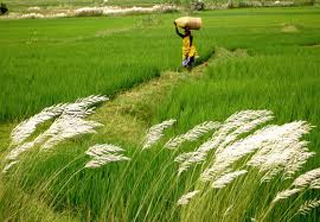 The Indian Council of Agricultural Research (ICAR) held its 83rd Foundation Day in New Delhi on Saturday. The Prime Minister, Dr. Manmohan Singh, delivered the ICAR Foundation Day Lecture on the occasion. Harish Rawat, union minister of state for agriculture, food processing industries and parliamentary affairs; and Charan Das Mahant, union minister of state for agriculture and food processing industries, were also present at the function.
The Indian Council of Agricultural Research (ICAR) held its 83rd Foundation Day in New Delhi on Saturday. The Prime Minister, Dr. Manmohan Singh, delivered the ICAR Foundation Day Lecture on the occasion. Harish Rawat, union minister of state for agriculture, food processing industries and parliamentary affairs; and Charan Das Mahant, union minister of state for agriculture and food processing industries, were also present at the function.
As part of the lecture, the Prime Minister pointed out that the challenges that India’s agriculture was likely to face in the coming years remained enormous. “Though we have achieved self-sufficiency in cereal production, we continue to depend upon imports for pulses and edible oils. We continue to face the problem of under-nutrition, particularly among our children and women. Ensuring food and nutritional security and eliminating hunger, including hidden hunger, remain a high national priority,” he said.
Dr Singh added, “The inclusive strategies of development that we are pursuing should further increase the incomes of the poorer sections of our society. This will further increase demand for not only food grains but also fruits, vegetables and animal products. The total demand for food grains is projected to touch 280 million tonnes by the year 2020-21. Meeting this demand will necessitate a growth rate of nearly 2 per cent per annum in food production. The enormity of the task ahead is indicated by the fact that during the 10 year period 1997-98 to 2006-07, our food grain production grew at an average annual rate of only 1 per cent. Although food grain production has since regained the requisite momentum and the agriculture sector as a whole is set to grow at 3% per annum during the Eleventh Plan, we cannot be complacent. We must note that this is less than the targeted 4% and a consequence in recent years has been unacceptable levels of food price inflation. I expect the Twelfth Plan to contain all measures that are required to accelerate our agricultural growth rate.”
The Prime Minister felt, “We clearly need a second green revolution that is more broad-based, more inclusive and more sustainable; we need to produce more without depleting our natural resources any further, and we look towards our agricultural scientists for ushering this green revolution. India currently spends about 0.6 per cent of its agricultural GDP on agricultural Research and Development. This needs to be enhanced at least 2 to 3 times by 2020, since a substantial portion of our agricultural growth would come through the application of new technologies and new knowledge to production processes. But spending more on research is not enough unless this improves the quality of human resources in all areas of agriculture.”
Later, Dr S Ayyappan, secretary, DARE, and director-general, ICAR, highlighted the achievements and future research strategies of the council to accelerate agricultural growth and development in the country.